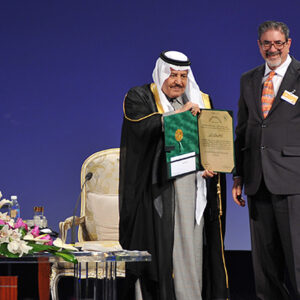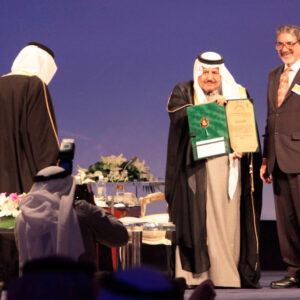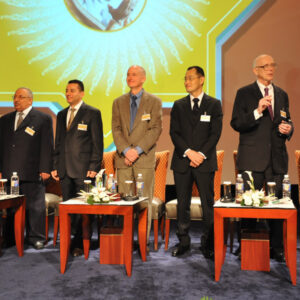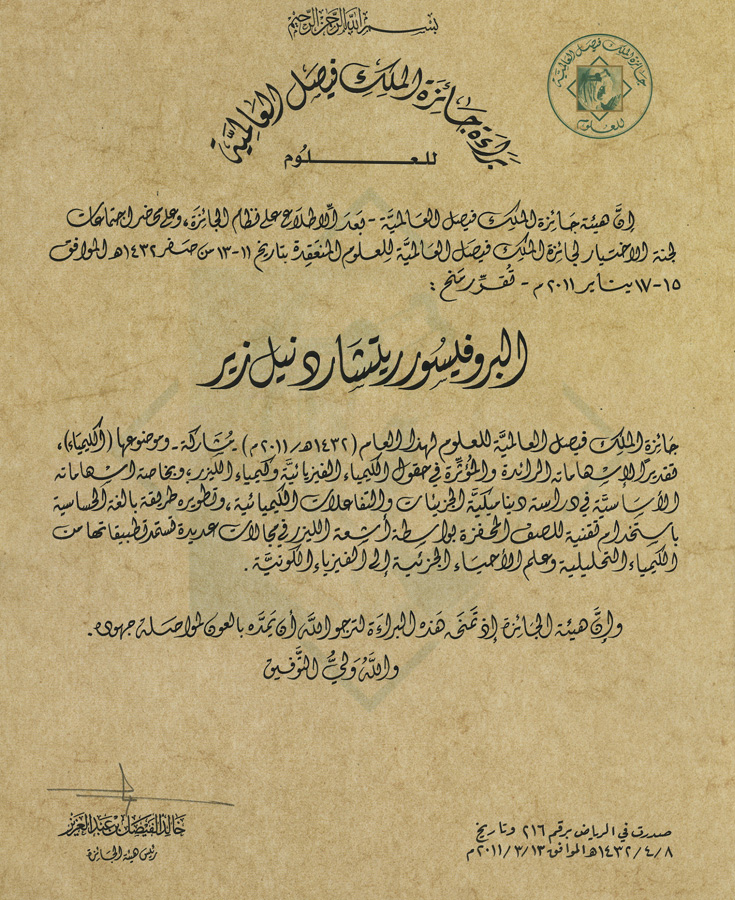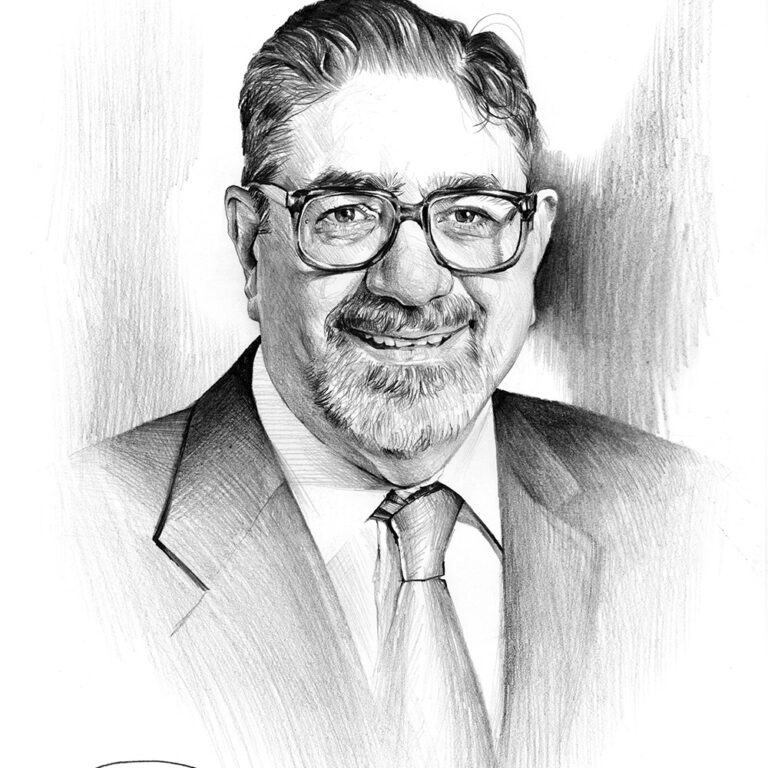

Professor Richard Zare
King Faisal Prize in Science 2011 Laureate
Topic: "Chemistry "
The satisfaction of obtaining insight into how nature behaves may seem like a private pursuit, but, in reality, much of the pleasure for me lies not only in discovering ways to picture the processes of nature but also in sharing those pictures with others

Richard Zare received his B.A. in chemistry and physics (1961) and his Ph.D. in chemical physics (1964) at Harvard University. In 1965, he became an assistant professor of chemistry at Massachusetts Institute of Technology, and the following year he moved to the University of Colorado, where he held joint appointments in the department of chemistry and the department of physics and astrophysics. In 1969, he became a full professor at Columbia University, and in 1975, he was appointed as the Higgins Professor of Natural Science. He became a chemistry professor at Stanford University in 1977 and is currently the Marguerite Blake Wilbur Professor in Natural Science at Stanford.
Professor Zare is one of the most accomplished chemical physicists and laser chemists worldwide. He is most renowned for his discovery of “laser induced fluorescence,” which has become an important and highly sensitive technique for studying chemical reactions and chemical reaction dynamics at the molecular level as well as detecting trace amounts of compounds. Professor Zare ranks amongst the top 25 most highly cited chemists alive today. He has published more than 900 papers, holds more than 50 patents and has an H-index of about 104. His work has been cited more than 35,000 times and some of his papers have been cited over 500 times each. Professor Zare is also involved in astrobiology; his most highly cited work involves the examination of a 4.5 billion years old meteorite sample from Mars where he speculated that it might contain traces of primitive Martian life. He has also authored four books, the best known dealing with the topic of angular momentum in quantum systems.
Professor Zare’s outstanding contributions in the fields of chemical physics and laser spectroscopy have been recognized by numerous awards, including the U.S. National Medal of Science, the Welch Award in Chemistry, the Wolf Prize in Chemistry, the Priestley Medal from the American Chemical Society and the BBVA Foundation Award in Basic Sciences. He has also earned numerous awards for excellence in chemistry teaching, in addition to about ten honorary degrees from renowned US and international universities.
Professor Zare is also a member or fellow of many US and international academies and societies including the national science academies of the USA, Sweden, China and India, the American Philosophical Society, the American Academy of Arts and Sciences, the American Association for the Advancement of Science, the Royal Society of Chemistry (London), the American Chemical Society (ACS), the American Physical Society (APS), and TWAS, the Academy of Sciences for the Developing World. He has also served on the National Science Board of the National Science Foundation (1992-1998), with the last two years as its Chair, and as Chair of the President’s National Medal of Science Selection Committee (1997-2000). He is currently Chairman of the Board of Directors at Annual Reviews, Inc. and on the Board of Directors of the Camille and Henry Dreyfus Foundation. He is also a member of the editorial advisory boards of several scientific publications. He has given numerous named lectures at numerous universities in the USA and abroad.
This biography was written in the year the prize was awarded.
- He Received many awards including:
- Torbern Bergman Medal in 2012.
- World Academy of Sciences Lecture Medal in 2012.
- International Science and Technology Cooperation Award in 2012.
- Honorary Doctorate, University of South Florida in 2013.
- Honorary Doctorate, University of Edinburgh in 2016.
- Othmer Gold Medal in 2017.

